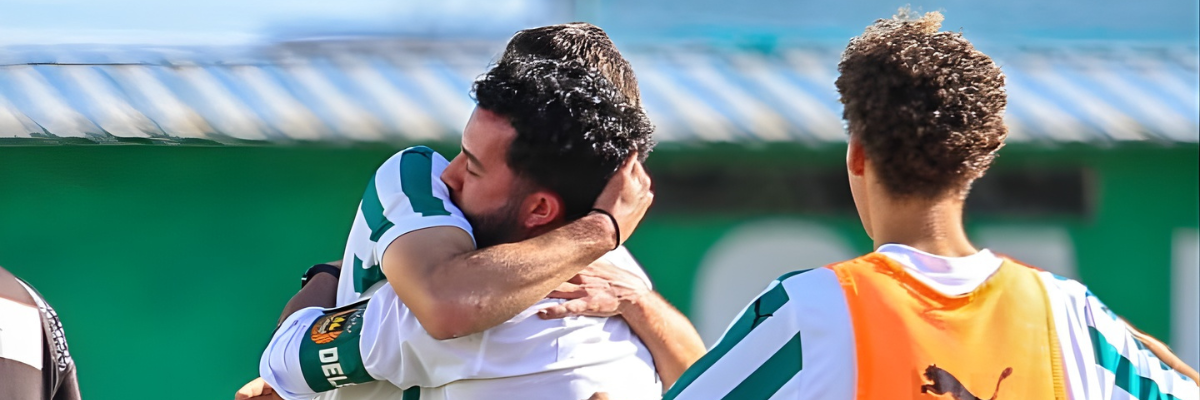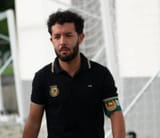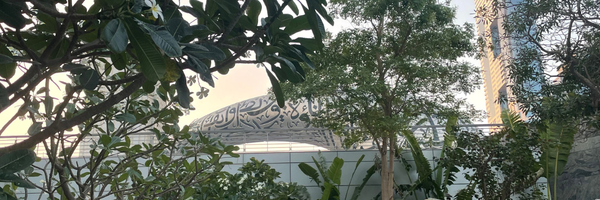The Power of a Stable Environment in Youth Development and Performance
How to empower young athletes to perform at their peak? The secret lies not in what we add, but in what we remove. Learn from a professional youth academy team manager how creating a sacred space of trust and order is the ultimate foundation for victory, on and off the pitch.

Rui is a talented professional who coordinates Team Managers for the youth academy players at Rio Ave FC, a top-tier club in Portugal, whose stadium is right in front of my childhood beach.
His work in empowering youth growth at various levels has been an inspiration to his colleagues, the young athletes he works with, and to me as well. This is why I asked him to share his experience behind the scenes of youth football, as it touches some of the work I do through Dragon Within for youth development.
Get ready for wisdom nuggets and food for thought.
Letting coaches and players focus on football
In youth football, the heart of the game belongs to the players and coaches. They’re the ones who train, compete, and bring the sport to life. But over the past two seasons as the team manager for Rio Ave’s U19S, I’ve learned that consistent performance isn’t built only on what happens between the white lines — it starts with the environment that surrounds the team.
When the logistics, schedules, and communication are all running smoothly, everything changes. Players can focus on performing, and coaches can focus on developing. I’ve seen it first-hand: when the boys arrive at training and everything is ready — equipment laid out, kit organized, pitch booked — there’s a calmness that carries into their work. The focus sharpens. The energy feels different.
Knowing how to stay grounded, focused and present in these moments of tension is the apex of my work.
A stable environment doesn’t replace the work of the players and coaches; it amplifies it. It creates the calm, focused conditions where their preparation and talent can truly flourish. That’s where I see my role — not just as an administrator, but as an architect of stability.
Building the container for growth
A well-managed team is like a well-tended garden: growth happens naturally when the environment is right. My role as team manager is to build that environment: a stable container where players can thrive and coaches can lead effectively.
This goes beyond logistics. It’s about creating psychological safety and clarity. When everyone knows where they need to be, what’s expected of them, and that someone has already thought through the details, anxiety drops and confidence rises.
Being a team manager is a lesson in mindfulness
I recall last season, before a key away match, we had a last-minute change in our transportation to the game, putting everything we worked for at risk. Because everything else was already well-organized — the kits packed, the meals sorted, the player list confirmed — we had to adapt quickly and without stress. Knowing how to stay grounded, focused and present in these moments of tension is the apex of my work. The situation was resolved, and players didn’t even notice the issue; they stayed focused on the game. That’s the kind of calm structure I try to protect.
When young athletes feel they belong to something organized and purposeful, they start acting like professionals. Every prepared trip, every clear message, every kit bag ready on time contributes to that sense of order and trust.
The work that often goes unnoticed
Being a team manager is a lesson in mindfulness — noticing what others might overlook, anticipating problems before they arise, and staying calm when the unexpected happens.
There are moments when no one sees the extra effort: double-checking match sheets, chasing last-minute confirmations, or fixing an issue with training gear minutes before warm-up. However, those quiet tasks lay the invisible foundation for performance.
I don’t see my role as just managing tasks; I see it as designing an experience. I’m creating a stable, trusting environment where players and coaches can focus entirely on football. And when that happens, I’ve done my job — because when the environment is right, talent can finally breathe.
In football, the spotlight naturally falls on the players who score and the coaches who lead from the touchline — and rightly so. But behind every smooth training session and every well-prepared matchday lies a layer of unseen work that holds it all together.
A stable environment doesn’t replace the work of the players and coaches; it amplifies it.
That invisible labor may not earn applause, but it builds trust, consistency, and the conditions where everyone else can shine. And that's how a stable environment lays a strong root for long-lasting impact in youth development and performance building.
A significant part of my work at Dragon Within involves coaching youth and children from as early as 4 years old. Working with the development of young citizens is a critical mission, as we contribute to shaping their personality and attitude towards life.
I have been working with kids for many years — some of them are now confident young adults. And know first-hand how important it is to have different actors performing different roles in their growth environment.
If you are curious about how Dragon Within's methodologies can contribute to shaping your kids' little warrior mindset, let's talk!



